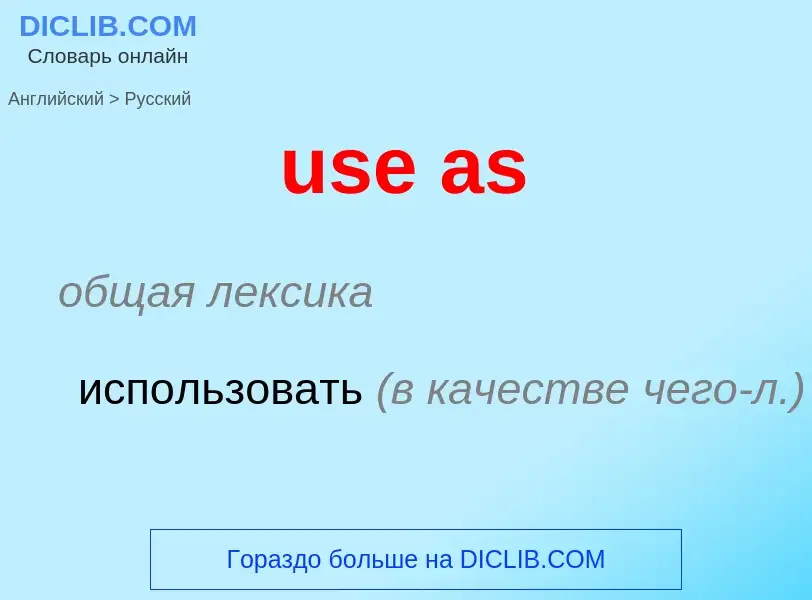Vertaling en analyse van woorden door kunstmatige intelligentie ChatGPT
Op deze pagina kunt u een gedetailleerde analyse krijgen van een woord of zin, geproduceerd met behulp van de beste kunstmatige intelligentietechnologie tot nu toe:
- hoe het woord wordt gebruikt
- gebruiksfrequentie
- het wordt vaker gebruikt in mondelinge of schriftelijke toespraken
- opties voor woordvertaling
- Gebruiksvoorbeelden (meerdere zinnen met vertaling)
- etymologie
use as - vertaling naar russisch
общая лексика
использовать (в качестве чего-л.)
Definitie
Wikipedia
The use–mention distinction is a foundational concept of analytic philosophy, according to which it is necessary to make a distinction between using a word (or phrase) and mentioning it. Many philosophical works have been "vitiated by a failure to distinguish use and mention". The distinction can sometimes be pedantic, especially in simple cases where it is obvious.
The distinction between use and mention can be illustrated with the word cheese:
- Use: Cheese is derived from milk.
- Mention: "Cheese" is derived from (the Anglian variant of) the Old English word ċēse (pronounced [ˈt͡ʃeː.se]).
The first sentence is a statement about the substance called "cheese": it uses the word "cheese" to refer to that substance. The second is a statement about the word "cheese" as a signifier: it mentions the word without using it to refer to anything other than itself. Note the quotation marks.

